Books on consciousness
A list of books relating to the hard problem of consciousness. Regularly updated cos I keep finding new stuff all the time.
A list of books relating to the hard problem of consciousness. Regularly updated cos I keep finding new stuff all the time.
2004
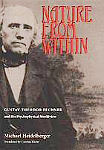 Michael Heidelberger
Michael Heidelberger
Nature from Within: Gustav Theodor Fechner and His Psychophysical Worldview
(Univ. Pittsburgh Press 2004, trans. Cynthia Klohr)
Gustav Theodor Fechner (1801-1887) was a German physicist, psychologist, and philosopher, best known to historians of science as the founder of psychophysics, the experimental study of the relation between mental and physical processes. Heidelberger’s exhaustive study successfully re-establishes Fechner’s place in the history and philosophy of science. See Pittsburgh | Amazon | Google
 David Morris
David Morris
The Sense of Space
(SUNY Press 2004)
Drawing on the philosophies of Merleau-Ponty and Bergon as well as contemporary psychology, Morris shows that space is a plastic environment, charged with meaning, that reflects the distinctive character of human embodiment in the full range of its moving, perceptual, emotional, expressive, developmental, and social capacities. See SUNY | Amazon | Google
 Paul Bloom
Paul Bloom
Descartes’ Baby: How the Science of Child Development Explains What Makes Us Human
(Basic Books 2004)
We can explain much of what makes us human by recognizing that we are natural Cartesians - dualistic thinking comes naturally to us. We have two distinct ways of seeing the world: as containing bodies and as containing souls. These two modes interact in surprising ways in the course of the development of each child, and in the social context of a community give rise to certain uniquely human traits such as morality and religion. See Amazon | Google
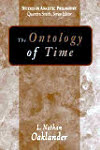 L. Nathan Oaklander
L. Nathan Oaklander
The Ontology of Time
(Prometheus 2004)
A carefully edited and cross-referenced compilation of some of Professor Oaklander’s most significant work in the philosophy of time, serving beautifully as both an up-to-date reference as well as an introduction to the ongoing debate between ‘tenser’ A-theorists and ‘detenser’ B-theorists. See Prometheus | Amazon | Google
 Søren Overgaard
Søren Overgaard
Husserl and Heidegger on Being in the World
(Springer 2004)
A study of the phenomenological philosophies of Husserl and Heidegger. Through a critical discussion including practically all previously published English and German literature on the subject, Overgaard aims to present a thorough and even-handed account of the relation between the two. He provides a detailed presentation of their respective projects and methods, and examines several of their key phenomenological analyses, centering on the phenomenon of being-in-the-world. Accessible and rewarding to non-specialists and specialists alike. See Springer | Amazon | Google
 Ruth Garrett Millikan
Ruth Garrett Millikan
Varieties of Meaning
(MIT 2004)
Many different things are said to have meaning: people mean to do various things, tools and other artifacts are meant for various things, people mean various things by using words and sentences, natural signs mean things, representations in people’s minds also presumably mean things. In this book (the 2002 Jean Nicod Lectures), Millikan argues that these different kinds of meaning can be understood only in relation to each other. See MIT | Amazon | Google
 Colin McGinn
Colin McGinn
Consciousness and its Objects
(Oxford 2004)
McGinn presents his latest work in ten interconnected essays, four of them new. He extends and deepens his controversial view that consciousness is ontologically unproblematic but epistemologically impenetrable. He also investigates the basis of our knowledge that there is a mind-body problem, and the bearing of this on attempted solutions. What the philosophy of mind needs now is “methodological radicalism” – a willingness to consider seemingly extravagant ideas. See Oxford | Amazon | Google
 Jesse J. Prinz
Jesse J. Prinz
Gut Reactions: A Perceptual Theory of Emotion
(Oxford 2004)
An interdisciplinary defense of the claim that emotions are perceptions of changes in the body. This thesis, pioneered by William James and resuscitated by Antonio Damasio, has been widely criticized for failing to acknowledge that emotions are meaningful insofar as they represent concerns, not respiratory function and blood pressure. Prinz offers a new unified account of the emotions that reconciles these two theories. See Oxford | Amazon | Google
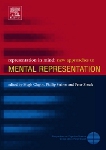 Clapin, Staines, Slezak (eds.)
Clapin, Staines, Slezak (eds.)
Representation in Mind: New Approaches to Mental Representation
(Elsevier 2004)
Offers fresh ideas and new criticisms of old ideas. The introduction considers the problem for which mental representation has been seen as an answer and outlines the main issues. These include the relation between mental and non-mental representation, misrepresentation, the role of mental representation in action, the relation between representation and consciousness, and the relation between folk psychology and explanations invoking mental representations. See Elsevier | Amazon | Google
 Dan Zahavi (ed.)
Dan Zahavi (ed.)
Hidden Resources: Classical Perspectives on Subjectivity
(Imprint 2004)
To what extent can the current discussion of consciousness in mainstream cognitive science and analytical philosophy of mind profit from insights drawn from the investigations of subjectivity found in the Kantian and post-Kantian tradition as well as in the phenomenological and hermeneutical tradition? The essays in this volume range across philosophy, psychopathology, cognitive neuroscience, and developmental psychology. See Imprint | Google
 David Woodruff Smith
David Woodruff Smith
Mind World: Essays in Phenomenology and Ontology
(Cambridge 2004)
Developing ideas drawn from historical figures like Descartes, Husserl, Aristotle, and Whitehead, this collection explores the structure of consciousness and its place in the world and, inversely, the structure of the world and the place of consciousness in it. Includes the phenomenological aspects of experience, dependencies between experience and the world and the basic ontological categories found in the world at large. See Cambridge | Google
 Wolfgang Huemer
Wolfgang Huemer
The Constitution of Consciousness: A Study in Analytic Phenomenology
(Routledge 2004)
Through the work of philosophers like Sellars, Davidson and McDowell, the question of how the mind is related to the world has gained new importance in contemporary analytic philosophy. This book demonstrates that Husserl’s phenomenological analyses of the structure of consciousness can provide fruitful insights for developing an original approach to these questions. See Routledge | Google
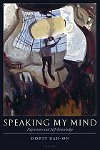 Dorit Bar-On
Dorit Bar-On
Speaking My Mind
(Oxford 2004)
Bar-On develops an original view of avowals and self-knowledge which answers many questions concerning our ability to know our own minds. According to Bar-On’s Neo-Expressivist view, avowals - those everyday spontaneous pronouncements that we make about our own present states of mind - are acts through which we directly express, rather than merely report, the very mental conditions the avowals ascribe. Verbal acts of speaking our minds are thus similar to natural expressions, such as sighing, or smiling. See Oxford | Google | Amazon
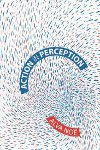 Alva Noë
Alva Noë
Action in Perception
(MIT 2004)
“Perception is not something that happens to us, or in us,” writes Alva Noë. “It is something we do.” In this book, Noë argues that perception and perceptual consciousness depend on capacities for action and thought—that perception is a kind of thoughtful activity. Touch, not vision, should be our model for perception. Perception is not a process in the brain, but a kind of skillful activity of the body as a whole. We enact our perceptual experience. See MIT Press | Google | Amazon
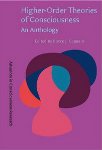 Rocco J. Gennaro (ed.)
Rocco J. Gennaro (ed.)
Higher-Order Theories of Consciousness: An Anthology
(John Benjamins 2004)
Higher-order theories of consciousness have in common the idea that what makes a mental state conscious is that it is the object of some kind of higher-order representation. This volume presents fourteen previously unpublished essays both defending and criticizing this approach to the problem of consciousness. It is the first anthology devoted entirely to higher-order theories of consciousness. See John Benjamins | Google | Amazon
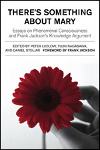 Ludlow, Nagasawa, Stoljar (eds.)
Ludlow, Nagasawa, Stoljar (eds.)
There’s Something About Mary
(MIT 2004)
The first book devoted solely to Frank Jackson’s famous thought experiment about the colour-blind scientist Mary. It collects the main essays in which Jackson presents (and later rejects) his argument along with key responses by other philosophers. See MIT Press | Google | Amazon
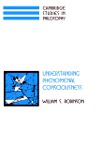 William S. Robinson
William S. Robinson
Understanding Phenomenal Consciousness
(Cambridge 2004)
Focusing on sensory experience and perception qualities, Robinson presents a dualistic view of the mind called Qualitative Event Realism that goes against the dominant materialist views. See Cambridge | Google | Amazon
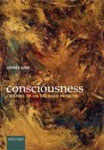 Jeffrey Gray
Jeffrey Gray
Consciousness – Creeping up on the Hard Problem
(Oxford 2004)
A leading scientist analyzes how conscious experience relates to brain and behaviour and reaches conclusions that will surprise many. See Oxford University Press | Amazon | Google Books | Review (Stephen Biggs)
 Gregg Rosenberg
Gregg Rosenberg
A Place for Consciousness
(Oxford 2004)
Rosenberg explores the idea that consciousness is tied to an inner aspect of processes that science normally studies only from the outside. He lays out an original theory of the roots of consciousness in the intrinsic nature of causation. See Oxford | Amazon | Metapsychology (review).
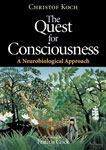 Cristof Koch
Cristof Koch
The Quest for Consciousness: A Neurobiological Approach
(Roberts and Company 2004)
Neurobiology has started to close in on its ultimate goal, to define the neural basis of human consciousness. Christof Koch, in intimate collaboration with Francis Crick, has been one of the major pioneers in this quest, and in this new book he offers a vivid, brilliant and very personal account of how the quest for consciousness has developed in the last twenty years. See Roberts and Company | Amazon | Google Books | Quest for Consciousness Website (with sample chapters) | Raymond Tallis review (pdf)
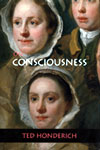 Ted Honderich
Ted Honderich
On Consciousness
(University of Pittsburgh 2004)
Is your consciousness in your head? Is it anything in there? This book offers answers to the question of the very nature of consciousness, and the separate question of how consciousness is related to the brain. Honderich considers anomalous monism and the thinking of neuroscientists and functionalists, reconsiders his own Union Theory and the anti-individualism that disconnects the mind from the brain. He leads up to the question: ‘What is it like for you to be aware of the room you are in?’ The bold new answer is: ‘It is for the room in a way to exist.’ See University of Pittsburgh | Google Books | Stuart Derbyshire review | Ross on the dispute between Honderich and Colin McGinn (pdf).
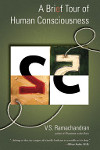 V. S. Ramachandran
V. S. Ramachandran
A Brief Tour of Human Consciousness: From Impostor Poodles to Purple Numbers
(Pi Press 2004)
How can some people come to believe that their poodle is an impostor? Or see colors in numbers? Ramachandran shares his unique insight into human consciousness in an entertaining, inspiring and dazzling tour of the ultimate frontier – the thoughts in our heads. He also sums up the implications of the revolution in our understanding of consciousness in a fascinating argument about our essential sense of self and its distributed nature. See Amazon | Google
 Gerald Edelman
Gerald Edelman
Wider than the Sky: The Phenomenal Gift of Consciousness
(Yale 2004)
How does the firing of neurons give rise to subjective sensations, thoughts, and emotions? How can the disparate domains of mind and body be reconciled? In this direct and non-technical discussion of consciousness, Edelman draws on a lifetime of scientific inquiry into the workings of the brain to formulate answers to the mind-body questions that intrigue every thinking person. See Yale University Press | Amazon | Google Books | Edward Rothstein review (New York Times) | Raymond Tallis review (pdf)

Nature from Within: Gustav Theodor Fechner and His Psychophysical Worldview
(Univ. Pittsburgh Press 2004, trans. Cynthia Klohr)
Gustav Theodor Fechner (1801-1887) was a German physicist, psychologist, and philosopher, best known to historians of science as the founder of psychophysics, the experimental study of the relation between mental and physical processes. Heidelberger’s exhaustive study successfully re-establishes Fechner’s place in the history and philosophy of science. See Pittsburgh | Amazon | Google

The Sense of Space
(SUNY Press 2004)

Drawing on the philosophies of Merleau-Ponty and Bergon as well as contemporary psychology, Morris shows that space is a plastic environment, charged with meaning, that reflects the distinctive character of human embodiment in the full range of its moving, perceptual, emotional, expressive, developmental, and social capacities. See SUNY | Amazon | Google

Descartes’ Baby: How the Science of Child Development Explains What Makes Us Human
(Basic Books 2004)
We can explain much of what makes us human by recognizing that we are natural Cartesians - dualistic thinking comes naturally to us. We have two distinct ways of seeing the world: as containing bodies and as containing souls. These two modes interact in surprising ways in the course of the development of each child, and in the social context of a community give rise to certain uniquely human traits such as morality and religion. See Amazon | Google

The Ontology of Time
(Prometheus 2004)

A carefully edited and cross-referenced compilation of some of Professor Oaklander’s most significant work in the philosophy of time, serving beautifully as both an up-to-date reference as well as an introduction to the ongoing debate between ‘tenser’ A-theorists and ‘detenser’ B-theorists. See Prometheus | Amazon | Google

Husserl and Heidegger on Being in the World
(Springer 2004)
A study of the phenomenological philosophies of Husserl and Heidegger. Through a critical discussion including practically all previously published English and German literature on the subject, Overgaard aims to present a thorough and even-handed account of the relation between the two. He provides a detailed presentation of their respective projects and methods, and examines several of their key phenomenological analyses, centering on the phenomenon of being-in-the-world. Accessible and rewarding to non-specialists and specialists alike. See Springer | Amazon | Google

Varieties of Meaning
(MIT 2004)

Many different things are said to have meaning: people mean to do various things, tools and other artifacts are meant for various things, people mean various things by using words and sentences, natural signs mean things, representations in people’s minds also presumably mean things. In this book (the 2002 Jean Nicod Lectures), Millikan argues that these different kinds of meaning can be understood only in relation to each other. See MIT | Amazon | Google

Consciousness and its Objects
(Oxford 2004)
McGinn presents his latest work in ten interconnected essays, four of them new. He extends and deepens his controversial view that consciousness is ontologically unproblematic but epistemologically impenetrable. He also investigates the basis of our knowledge that there is a mind-body problem, and the bearing of this on attempted solutions. What the philosophy of mind needs now is “methodological radicalism” – a willingness to consider seemingly extravagant ideas. See Oxford | Amazon | Google

Gut Reactions: A Perceptual Theory of Emotion
(Oxford 2004)
An interdisciplinary defense of the claim that emotions are perceptions of changes in the body. This thesis, pioneered by William James and resuscitated by Antonio Damasio, has been widely criticized for failing to acknowledge that emotions are meaningful insofar as they represent concerns, not respiratory function and blood pressure. Prinz offers a new unified account of the emotions that reconciles these two theories. See Oxford | Amazon | Google

Representation in Mind: New Approaches to Mental Representation
(Elsevier 2004)
Offers fresh ideas and new criticisms of old ideas. The introduction considers the problem for which mental representation has been seen as an answer and outlines the main issues. These include the relation between mental and non-mental representation, misrepresentation, the role of mental representation in action, the relation between representation and consciousness, and the relation between folk psychology and explanations invoking mental representations. See Elsevier | Amazon | Google

Hidden Resources: Classical Perspectives on Subjectivity
(Imprint 2004)
To what extent can the current discussion of consciousness in mainstream cognitive science and analytical philosophy of mind profit from insights drawn from the investigations of subjectivity found in the Kantian and post-Kantian tradition as well as in the phenomenological and hermeneutical tradition? The essays in this volume range across philosophy, psychopathology, cognitive neuroscience, and developmental psychology. See Imprint | Google

Mind World: Essays in Phenomenology and Ontology
(Cambridge 2004)
Developing ideas drawn from historical figures like Descartes, Husserl, Aristotle, and Whitehead, this collection explores the structure of consciousness and its place in the world and, inversely, the structure of the world and the place of consciousness in it. Includes the phenomenological aspects of experience, dependencies between experience and the world and the basic ontological categories found in the world at large. See Cambridge | Google

The Constitution of Consciousness: A Study in Analytic Phenomenology
(Routledge 2004)
Through the work of philosophers like Sellars, Davidson and McDowell, the question of how the mind is related to the world has gained new importance in contemporary analytic philosophy. This book demonstrates that Husserl’s phenomenological analyses of the structure of consciousness can provide fruitful insights for developing an original approach to these questions. See Routledge | Google

Speaking My Mind
(Oxford 2004)
Bar-On develops an original view of avowals and self-knowledge which answers many questions concerning our ability to know our own minds. According to Bar-On’s Neo-Expressivist view, avowals - those everyday spontaneous pronouncements that we make about our own present states of mind - are acts through which we directly express, rather than merely report, the very mental conditions the avowals ascribe. Verbal acts of speaking our minds are thus similar to natural expressions, such as sighing, or smiling. See Oxford | Google | Amazon

Action in Perception
(MIT 2004)

“Perception is not something that happens to us, or in us,” writes Alva Noë. “It is something we do.” In this book, Noë argues that perception and perceptual consciousness depend on capacities for action and thought—that perception is a kind of thoughtful activity. Touch, not vision, should be our model for perception. Perception is not a process in the brain, but a kind of skillful activity of the body as a whole. We enact our perceptual experience. See MIT Press | Google | Amazon

Higher-Order Theories of Consciousness: An Anthology
(John Benjamins 2004)

Higher-order theories of consciousness have in common the idea that what makes a mental state conscious is that it is the object of some kind of higher-order representation. This volume presents fourteen previously unpublished essays both defending and criticizing this approach to the problem of consciousness. It is the first anthology devoted entirely to higher-order theories of consciousness. See John Benjamins | Google | Amazon

There’s Something About Mary
(MIT 2004)
The first book devoted solely to Frank Jackson’s famous thought experiment about the colour-blind scientist Mary. It collects the main essays in which Jackson presents (and later rejects) his argument along with key responses by other philosophers. See MIT Press | Google | Amazon

Understanding Phenomenal Consciousness
(Cambridge 2004)

Focusing on sensory experience and perception qualities, Robinson presents a dualistic view of the mind called Qualitative Event Realism that goes against the dominant materialist views. See Cambridge | Google | Amazon

Consciousness – Creeping up on the Hard Problem
(Oxford 2004)
A leading scientist analyzes how conscious experience relates to brain and behaviour and reaches conclusions that will surprise many. See Oxford University Press | Amazon | Google Books | Review (Stephen Biggs)

A Place for Consciousness
(Oxford 2004)
Rosenberg explores the idea that consciousness is tied to an inner aspect of processes that science normally studies only from the outside. He lays out an original theory of the roots of consciousness in the intrinsic nature of causation. See Oxford | Amazon | Metapsychology (review).

The Quest for Consciousness: A Neurobiological Approach
(Roberts and Company 2004)
Neurobiology has started to close in on its ultimate goal, to define the neural basis of human consciousness. Christof Koch, in intimate collaboration with Francis Crick, has been one of the major pioneers in this quest, and in this new book he offers a vivid, brilliant and very personal account of how the quest for consciousness has developed in the last twenty years. See Roberts and Company | Amazon | Google Books | Quest for Consciousness Website (with sample chapters) | Raymond Tallis review (pdf)

On Consciousness
(University of Pittsburgh 2004)
Is your consciousness in your head? Is it anything in there? This book offers answers to the question of the very nature of consciousness, and the separate question of how consciousness is related to the brain. Honderich considers anomalous monism and the thinking of neuroscientists and functionalists, reconsiders his own Union Theory and the anti-individualism that disconnects the mind from the brain. He leads up to the question: ‘What is it like for you to be aware of the room you are in?’ The bold new answer is: ‘It is for the room in a way to exist.’ See University of Pittsburgh | Google Books | Stuart Derbyshire review | Ross on the dispute between Honderich and Colin McGinn (pdf).

A Brief Tour of Human Consciousness: From Impostor Poodles to Purple Numbers
(Pi Press 2004)
How can some people come to believe that their poodle is an impostor? Or see colors in numbers? Ramachandran shares his unique insight into human consciousness in an entertaining, inspiring and dazzling tour of the ultimate frontier – the thoughts in our heads. He also sums up the implications of the revolution in our understanding of consciousness in a fascinating argument about our essential sense of self and its distributed nature. See Amazon | Google

Wider than the Sky: The Phenomenal Gift of Consciousness
(Yale 2004)

How does the firing of neurons give rise to subjective sensations, thoughts, and emotions? How can the disparate domains of mind and body be reconciled? In this direct and non-technical discussion of consciousness, Edelman draws on a lifetime of scientific inquiry into the workings of the brain to formulate answers to the mind-body questions that intrigue every thinking person. See Yale University Press | Amazon | Google Books | Edward Rothstein review (New York Times) | Raymond Tallis review (pdf)
Menu
 What’s a logical paradox?
What’s a logical paradox? Achilles & the tortoise
Achilles & the tortoise The surprise exam
The surprise exam Newcomb’s problem
Newcomb’s problem Newcomb’s problem (sassy version)
Newcomb’s problem (sassy version) Seeing and being
Seeing and being Logic test!
Logic test! Philosophers say the strangest things
Philosophers say the strangest things Favourite puzzles
Favourite puzzles Books on consciousness
Books on consciousness Philosophy videos
Philosophy videos Phinteresting
Phinteresting Philosopher biographies
Philosopher biographies Philosopher birthdays
Philosopher birthdays Draft
Draftbarang 2009-2024  wayback machine
wayback machine
 wayback machine
wayback machine